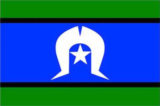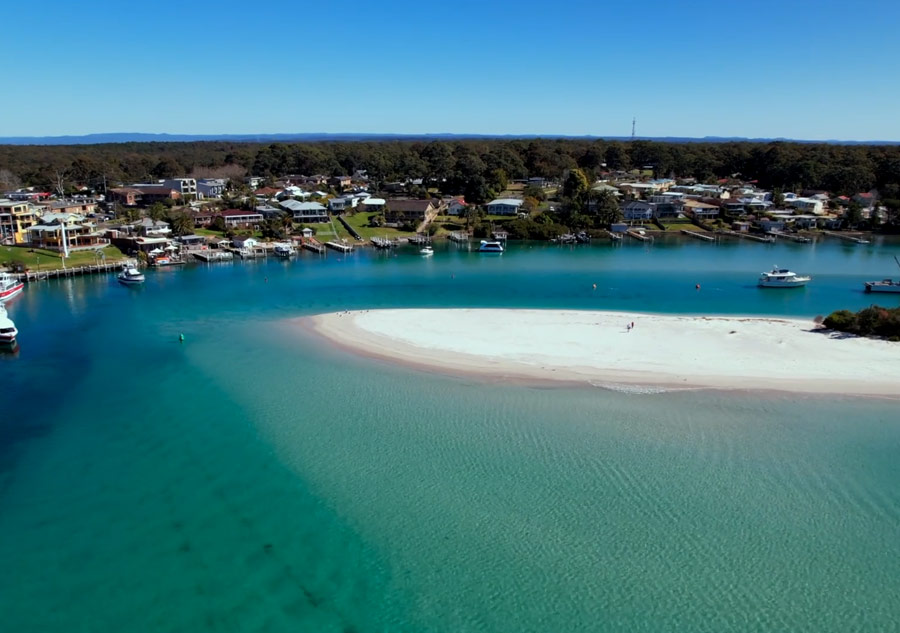Field Studies Centre and Year
9 Field Studies Program
It is home to the Year 9 Field Studies Program (FSP), a term-long, mandatory, immersive education residential that equips boys by providing opportunities for self-discovery, building relationships, exploring new ways of being in community together, and providing time for self-reflection and spiritual growth in a unique environment.
The School has been committed to residential outdoor education since opening its first residential programme at the original Pine Bluff campus in 1993. A growing body of research indicates the vital importance of this sort of immersive education. It is proving to be an effective antidote to apathy and alienation, increasing student engagement, boosting academic outcomes, as well as impacting the communities in which immersive education takes place.
Explore our Field Studies Centre
The Benefits of Trinity's Field Studies Program
Latest News from the FSC
A life-changing experience
“Less phone, more family”
Some are no longer slaves to their phones; others are choosing to share their lives more with...Show time at Woollamia
A swarm of ideas
Year 9 boys uncommunicative? Try watching them on presentation day at Trinity’s Field Studies Centre (FSC). One large room...Building mental muscle
A gym for strength of character
Why do you do bench presses? The question, posed by Headmaster Tim Bowden to students on...Purpose and benefits of the Trinity
Year 9 Field Studies Program
(FSP)
Trinity provides an education that challenges our students. As they meet these challenges, they are being prepared for the road ahead. The FSP plays an important role in developing their moral compass, being of service to others, and helping them take responsibility for things within their power.
During the extended FSP, a Trinity boy develops:
What Trinity students say about their
Field Studies Program
I loved the camp, it was the best experience
Now I feel like I can do anything that I put my mind to since I came back
I didn’t know most of the people, actually only a few, but I became friends with many, now I notice people I never did before
At home they say I’ve gotten less reliant on my parents and I can do more things myself, the point was to teach us to be young men and it really helped with that
I really enjoyed the whole experience, I spoke to the older boys before I went who told me it was a fun camp and it was as good as I expected.
Frequently Asked Questions
There is one FSP per term throughout Year 9.
The School allocates students to each term’s FSP, taking into account a range of learning, emotional and social considerations. We are aware there will be activities that clash – such as participating at an elite co-curricular level – and endeavour to take these into account when planning allocations.
The boys do not choose a preferential buddy, or pick with whom they share a cabin. One of the aims of the residential is fostering independence and developing the skills in students to make meaningful connections with those outside of their usual social group.
Families are advised of allocations towards the middle of Term 3.
Yes. The FSP is a mandatory part of the curriculum at the School.
No, the cost of the FSP is included in school fees… with the added cost-saving of having one less ravenous teenage mouth to feed during your son’s time away! The time at the FSP includes full board, all meals and all activities.
The academic elements of the extended FSP are accommodated within the Stage 5 (Years 9 and 10) curriculum structure. This structure allows students to maintain progress in key learning areas as well as afford opportunities to engage in experiential learning designed for the Field Studies location. The boys learn about dispositions for academic success during the residential and enjoy greater elective choice throughout the two years of Stage 5.
The way the School has structured the two years of 9 and 10 means the learning that takes place during the FSP at Woollamia is equally as important as the learning that takes place at Summer Hill.
Academic teaching is not compromised. The academic elements of the FSP are accommodated within the Stage 5 (Years 9 and 10) curriculum structure. This structure allows students to maintain progress in key learning areas as well as affording opportunities to engage in experiential learning designed for the Field Studies location.
During the extended FSP:
- NAPLAN is sat
- Accelerated academic streams are maintained
- Maths streaming, with appropriate tutors, continues
- Classes are streamed as they currently are at Summer Hill
- Learning support is provided
- Specialist language teaching is provided
- Academic teaching ratios are maintained
Yes, there is opportunity to continue instrumental practice. Music lessons are offered through Trinity’s peripatetic music tutors during the FSP via MS Teams video conferencing. Students who are currently working with external tutors will have the option of working with a Trinity tutor while at the FSP. Unfortunately, we are not able to facilitate music tuition with external teachers during the FSP. Individual practice time can also be logged and counted for the skill component of the Duke Of Edinburgh Award while on the FSP.
Curriculum will continue to be delivered in-line with the continuing academic program at Summer Hill. Accelerated academic streams are maintained.
A helpful way to think about the extended FSP and the curriculum is not that students are missing out on important learning taking place at Summer Hill whilst spending a term at Woollamia; rather the way the School has structured the two years of 9 and 10 means the learning that takes place during the extended FSP is equally as important as the learning that takes place at Summer Hill.
Yes, there is opportunity to continue swim training, the FSC has established links with local swim clubs and dedicated lane access for Trinity students. There is also appropriate on-site training developed in conjunction with our PT and conditioning staff.
As the FSP is a continuation of the curriculum at Summer Hill, yes, the boys are still expected to complete assignments. However, as the academic elements of the extended FSP are accommodated within the Stage 5 (Years 9 and 10) curriculum structure the School has built in specific, experiential curriculum tasks that are designed for the Field Studies location. Your son may not even be aware he’s completing a geography assessment as we ask him to bushwalk and navigate using a compass!
There are opportunities for parent contact. The boys use a combination of letter writing and parent check-in, through videoconference or and an in-person visit.
A parent camp out and family visiting day is held, typically on the Saturday and Sunday in Week 5 of the Program. It provides an opportunity for the boys to share their learning and overall experience with a significant adult relative on the Saturday evening and with their families onsite on the Sunday morning. Families have lunch offsite and spend the afternoon with their sons in the community.
Part of the benefit of the FSP is allowing boys to disconnect from our hyper-connected world. Letters are written, stamped and mailed – something for the parent memento box in years to come that will invoke more memories than an SMS or printed email on their 21st birthday! However, in response to this day and age, a certain amount of video conferencing and an in-person visit supplement what appears in a parent’s physical mailbox.
The boys have the opportunity to make contact with families via MS Teams video calls each fortnight. This generally happens on a Saturday afternoon.
A parent camp out and family visiting day takes place, typically on the weekend in Week 5 of the Program. It provides an opportunity for the boys to share their learning and overall experience with a significant adult relative on the Saturday evening and with their families onsite on the Sunday morning. Families have lunch offsite and spend the afternoon with their sons in the community.
Emergency visits/ leave are absolutely available for family emergencies.
Students are responsible for their own four or eight bed dorms and bathrooms; they assist within the kitchen; handle general chores around campus; and do their own laundry.
Menus and daily meals are prepared by the School’s caterers and individual special diets are catered for.
FSC staff are trained in remote first aid, there is a clinic morning and night, and the hospital is 25 minutes away. Staff are trained and experienced in outdoor education with expedition areas and program activities all risk assessed. Weather-checks are maintained and the FSC is equipped with satellite phone communications. External emergency services are available. For the School, safety overrides challenge; decisions are made to re-schedule planned activities appropriate to conditions.
TESS counsellors also support students through tele-health and video conferencing. Existing case managers will continue to meet regularly with students under their care.
For COVID-19 safety, the FSC has the capacity to conduct Rapid Antigen Testing onsite and an agreement with a local pathology provider should PCR testing be required.
The requirement for specialist equipment is minimal. As well as general packing advice, recommended gear lists are supplied to each cohort during the term preceding that cohort’s departure. Gear lists are drawn up in consultation with Trinity’s Head of Outdoor Education and are planned for multi-use across Trinity’s Outdoor Education, Duke of Edinburgh and Cadet programs. It is strongly recommended that parents purchase their son’s gear via a reputable outdoor equipment supplier. Trinity families have the option of purchasing equipment direct from Equipped Outdoors, a direct supplier of outdoor equipment, who ensure sizing, name label the ordered items, and deliver direct to the Woollamia Field Studies Centre, ready for each student’s arrival.
The recommended gear list and order form can be downloaded here
Students have been offered a bonus as part of their Program to Trinity’s Field Studies Centre at Woollamia – the chance to complete the bulk of a Duke of Edinburgh (DOE) award on site. The south coast sojourn presents an ideal chance to undertake the two “adventurous journeys” that are part of the Duke of Edinburgh award requirements, especially since Year 9 visits have been extended to a full term. It also affords the opportunity to fulfil the scheme’s other requirements – to learn a skill, engage in physical recreation, and perform service to the community.
Outdoor education staff at Woollamia will be trained as accredited award leaders. They will be available to support the boys attempting the qualification, helping them join the thousands of Trinity students to have taken part over more than 40 years.
Yes, we have a relationship with All Saints Anglican Church in Nowra. The boys attend evening service at least once while they are on the FSP. This is in addition to weekly Chapel Service, Christian Studies class, and an optional Bible Study session at lunch each Wednesday.
The Trinity Grammar School Woollamia Campus is located on Jerrinja, Wandi Wandian and Wandandian Aboriginal Country
We wish to honour the sovereignty and connection to Country of all Aboriginal and Torres Strait Islander peoples and pay respect to their Traditional Custodians and Elders past, present and emerging. As educators we acknowledge that learning has been taking place on this land for millennia.















